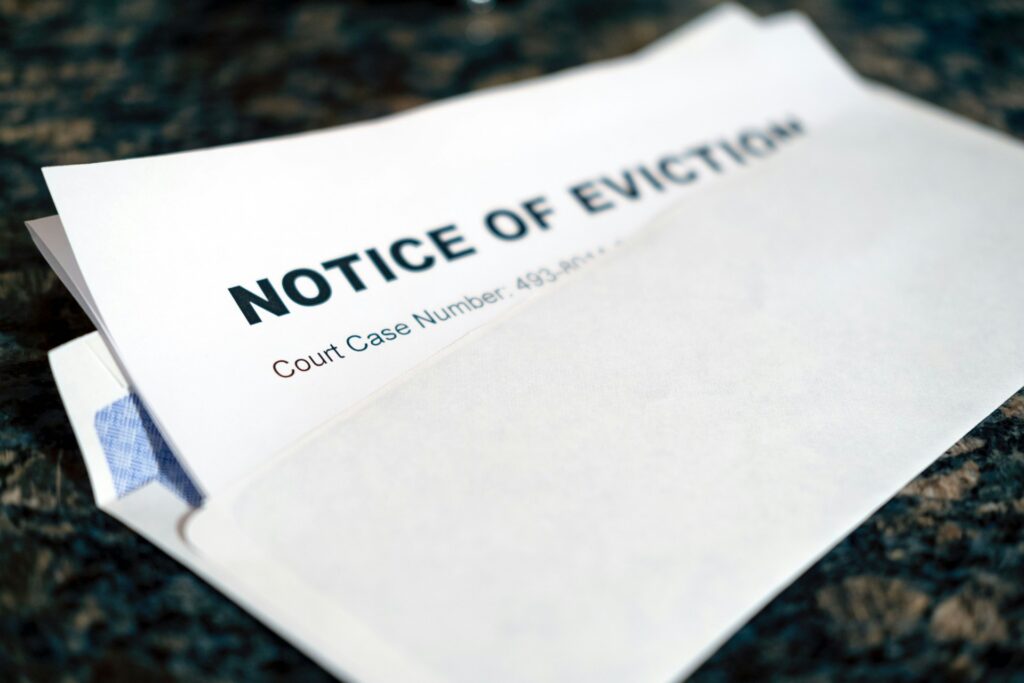Property Title Fraud – Could You Be Affected?

Estimated reading time 6 minutes
Property title fraud is something you may not have heard of; however, it’s becoming a huge problem in modern times. It’s a problem that could even make it possible for fraudsters to steal your home. And you may not even know it’s happened until it’s already too late.
What is Property Title Fraud?
Property title fraud happens when criminals illegally transfer property into their names after stealing the owner’s identity through the use of false documents. In this way, the HM Land Registry details are then updated fraudulently.
When this is done, the criminals can then sell or raise a mortgage against the property, usually deceiving solicitors and others who may be involved.
Who is at Risk of Property Title Fraud?
Most people don’t realise this can happen to them—it can happen to you! Property title fraud can happen to any homeowner, and there are properties that are more susceptible to this fraud issue, including:
- Properties that have been empty for a time; these can include rental properties and holiday lets
- Properties that are not inhabited; can happen in several instances, such as a property owner living overseas
- Properties that are not currently registered with HM Land Registry. This may include properties owned before 1990 and where no mortgage has been taken out since that time.
In addition, certain types of owners are also more at risk for property fraud, including:
- Elderly owners who may be in a care home (their homes are usually mortgage-free, making fraud easier)
- Owners who no longer live in the property (such as a bad break up between partners)
- Owners who have already been a victim of identity fraud
- Personal representatives who are responsible for the property (the owner has died)
- High-value properties without a mortgage
- Properties that are under redevelopment
As you can see, property fraud can happen to almost anyone. But is there anything you can do to protect yourself and your property from this problem?
Ways to Protect You and Your Property from Fraud
Here are some steps you can take to protect you and your property against fraud!
1. Sign Up for the Land Registry’s Property Alert Service
The Land Registry offers a free service that allows you to register up to ten different properties. Once you’re signed up, the Land Registry then notifies you of certain activities that may be questionable. Then you can take action if required.
Property Alert is an award-winning property monitoring service that’s perfect for anyone who is concerned that their registered property is at risk of property fraud. Just visit the Land Registry’s website to sign up for this valuable service.
2. Address for Service
The Land Registry needs a current address on their register for those times when they may need to contact you. For instance, they may receive an application or notice affecting your property. If the Land Registry only has an old address on record, it can take them much longer to reach you. Or they may even find it impossible to reach you.
You can register up to three addresses that can also include an email address. In order to update the address on your title, it’s necessary to complete the required Land Registry Form and have your ID verified by a solicitor.
3. Enter an Anti-Fraud Restriction on the Title
Another way to protect yourself against property fraud is by applying to place a restriction on the title of your property. The goal is to prevent a third party from fraudulently selling your property without notice. It also requires a solicitor to certify that the person selling or mortgaging the property is the true owner. For an investment property, you can enter an LL restriction.
4. Protect Yourself Against Identity Theft
The Money Laundering Act 2018 requires anyone buying or selling a home to produce their identity documents and show them to a solicitor. Some solicitors also take the precaution of meeting clients in person in their offices to verify their IDs.
Identity theft is easier than ever before with all the technology and apps available to scan documents such as passports, drivers’ licences, bank statements, and more. Plus, sending these documents via email is very dangerous.
All fraudsters need is a copy of your passport. Then they can manipulate the image and details to create a document that fits them yet is still similar to the original.
So, be careful about protecting your ID. If your ID is stolen, it’s possible to lose money and property to criminals.
5. Be on Guard for Email Hackers
Another problem is email hacking, which is commonly used by cybercriminals. They can intercept emails between a person and a business, stealing the person’s ID and other details. They can then use these to commit all types of fraud, including property fraud.
- Protect yourself from email hacking with the following methods:
- Cross-check bank details sent to you via email with those sent in the post. If the details differ, call the solicitor right away to ask them about this.
- If you receive an email that bank details have been changed, ask your solicitor.
- Agree to terms with your solicitor at the start of the conveyancing process as to how changes in bank details will be handled (such as in person, which is best)
- Don’t use public WiFi when exchanging emails about your property, as public WiFi is easier to hack.
- Use strong passwords on all email accounts and be sure to have antivirus protection on all devices that access the Internet.
6. Renting Out a Property or Own a Holiday Home
If you rent out a property and/or own a holiday home, then make sure the Land Registry has the current correspondence address, not the address of your property. These may be different. Remember, you can register up to ten addresses with the Land Register, including an email address with each one.
Summing It Up
Your property may be your most valuable asset. For this reason, fraudsters may try to make you a victim and acquire the property without your knowledge or permission.
So, be sure to follow the easy steps outlined in this article to help reduce the risk of falling victim to property title fraud.
If you believe you’re the victim of property title fraud, then quickly contact the Action Fraud by phone at 0300 123 2040 or by visiting www.actionfraud.police.uk. You can also email reportafraud@landregistry.gov.uk or contact the property fraud line at the Citizens Advice Bureau at 0300 006 7030.



